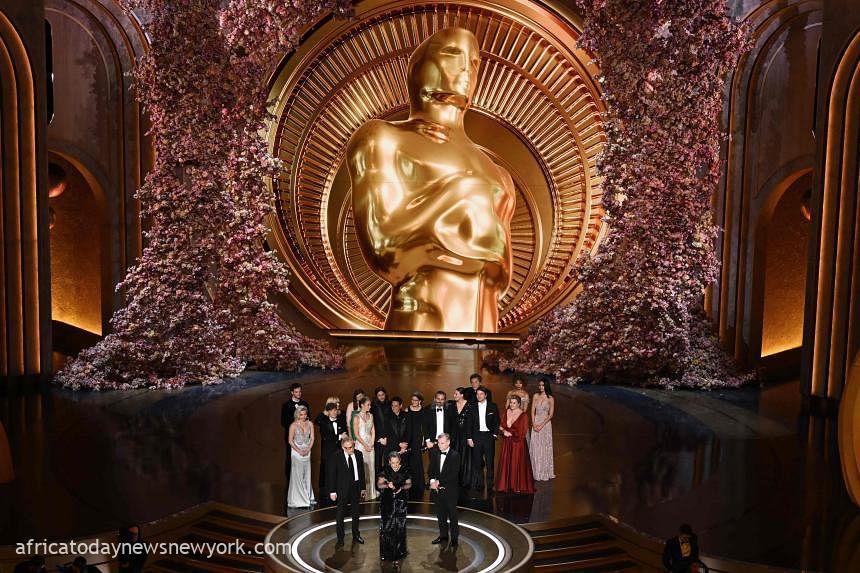While “Oppenheimer” shines brightly at the Oscars, the lingering trauma of Hiroshima, forever marked by the devastation of the first atomic bomb in 1945, highlights the complex repercussion of nuclear warfare.
“Is this really a movie that people in Hiroshima can bear to watch?” said Kyoko Heya. The president of the Japanese city’s international film festival, Heya, expressed these sentiments on Monday in response to the blockbuster’s remarkable success at the Oscars, where it secured seven awards, including the prestigious Best Picture.
Alongside Christopher Nolan’s Best Director triumph for the acclaimed biopic, a sensation during the previous summer worldwide, “Oppenheimer” was notably absent from theaters in Japan.
At the time, the absence of an official statement fueled speculation that sensitivities surrounding the subject matter may have been the reason behind “Oppenheimer” not being screened in Japan.
Hiroshima history
In the waning days of World War II, Hiroshima and Nagasaki became synonymous with tragedy as approximately 140,000 lives were lost in the former and 74,000 in the latter, casualties of the United States’ fateful decision to unleash atomic devastation upon these cities before the war’s end.
“Oppenheimer,” the highly anticipated mega-budget film, is set to make its long-awaited debut in Japan on March 29. However, Heya has arranged a special screening for high school students on Tuesday, offering them an exclusive sneak peek.
At the city’s Peace Memorial Park near the bomb’s epicenter, the 69-year-old shared with AFP her perspective on Nolan’s film, describing it as “very America-centric.”
Within the park’s peaceful atmosphere, the ruins of a once-grand dome stand as a somber reminder of the attack’s toll, accompanied by a museum and other sobering memorials.
Initially filled with apprehension, Heya grappled with the daunting idea of screening Oppenheimer in Hiroshima, a bustling metropolis now home to 1.2 million residents.
But eventually, she stopped questioning her decision.
Read also: Oscar Nominees Emerge As Awards Row Rages Over Females
“I now want many people to watch the movie. This is because I’d be happy to see Hiroshima, Nagasaki and atomic weapons become the subject of discussions thanks to this movie,” she said.
A screening will also be held in Nagasaki before the film’s official release date.
Yu Sato, a 22-year-old student at Hiroshima City University, said she felt “a bit scared” about how bomb survivors and their families would react to the Oscar-winning film.
“I have mixed feelings, to be honest,” said Sato, who works with the survivors through her studies.
“Oppenheimer created the atomic bomb, which means he made this world a very scary place,” she said.
“Even if he did not intend to kill many people, he cannot be seen as completely unaccountable.”
Director Nolan has said he was inspired to make “Oppenheimer” after stumbling upon a Pulitzer Prize-winning biography of J. Robert Oppenheimer, the physicist who oversaw the invention of the atomic bomb.
The film garnered widespread attention last year by premiering on the same day as “Barbie,” sparking a viral trend of memes revolving around the unexpected fusion known as the “Barbenheimer” craze.
The jests stirred anger online in Japan, the sole nation to endure a wartime nuclear strike, with social media users swiftly responding to the “Oppenheimer” Oscars domination.
One user on X, formerly Twitter, called “Oppenheimer” seven Oscars victories “overwhelming”, asking: “What is this strength? It must be one heck of a masterpiece.”
